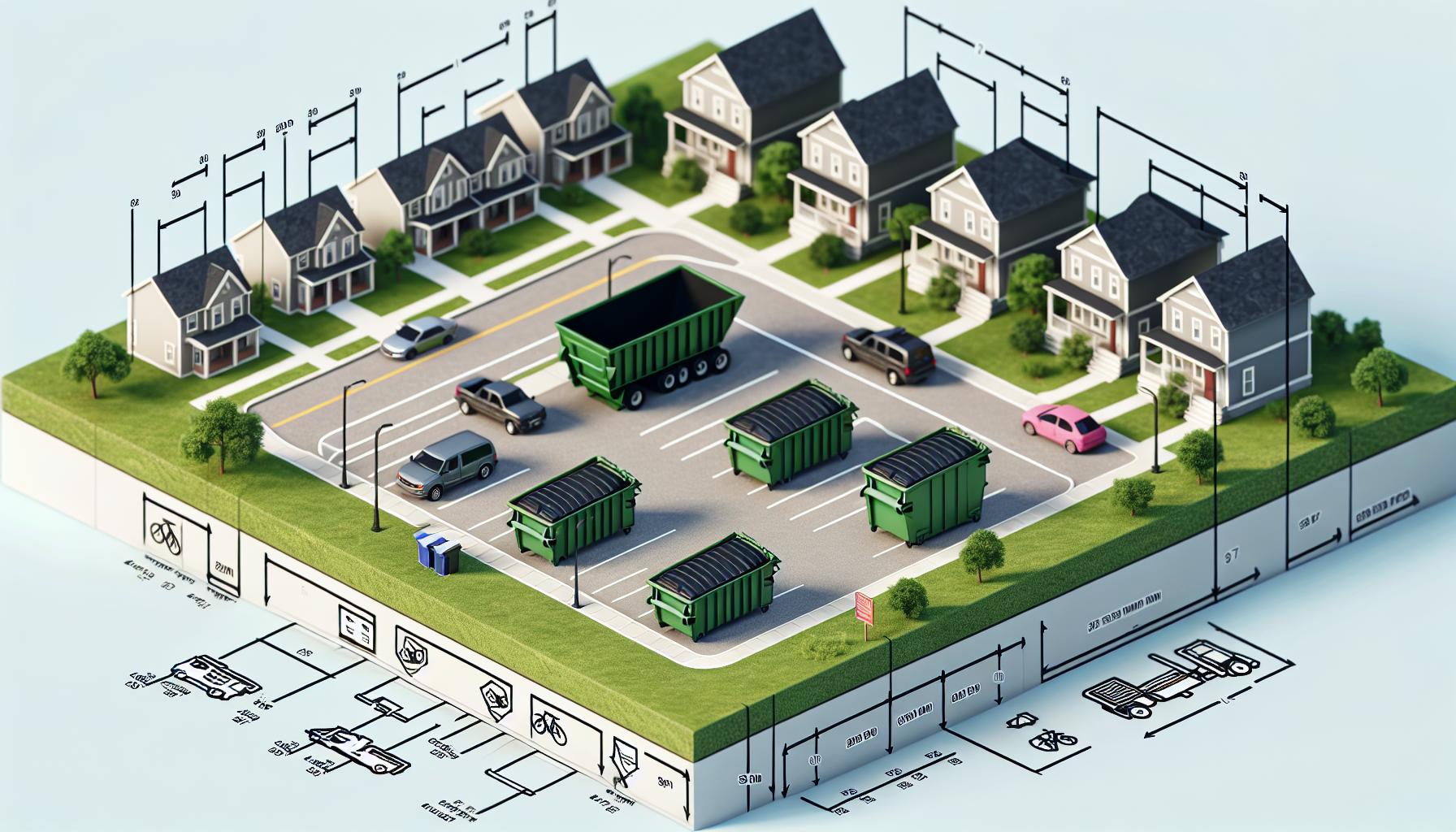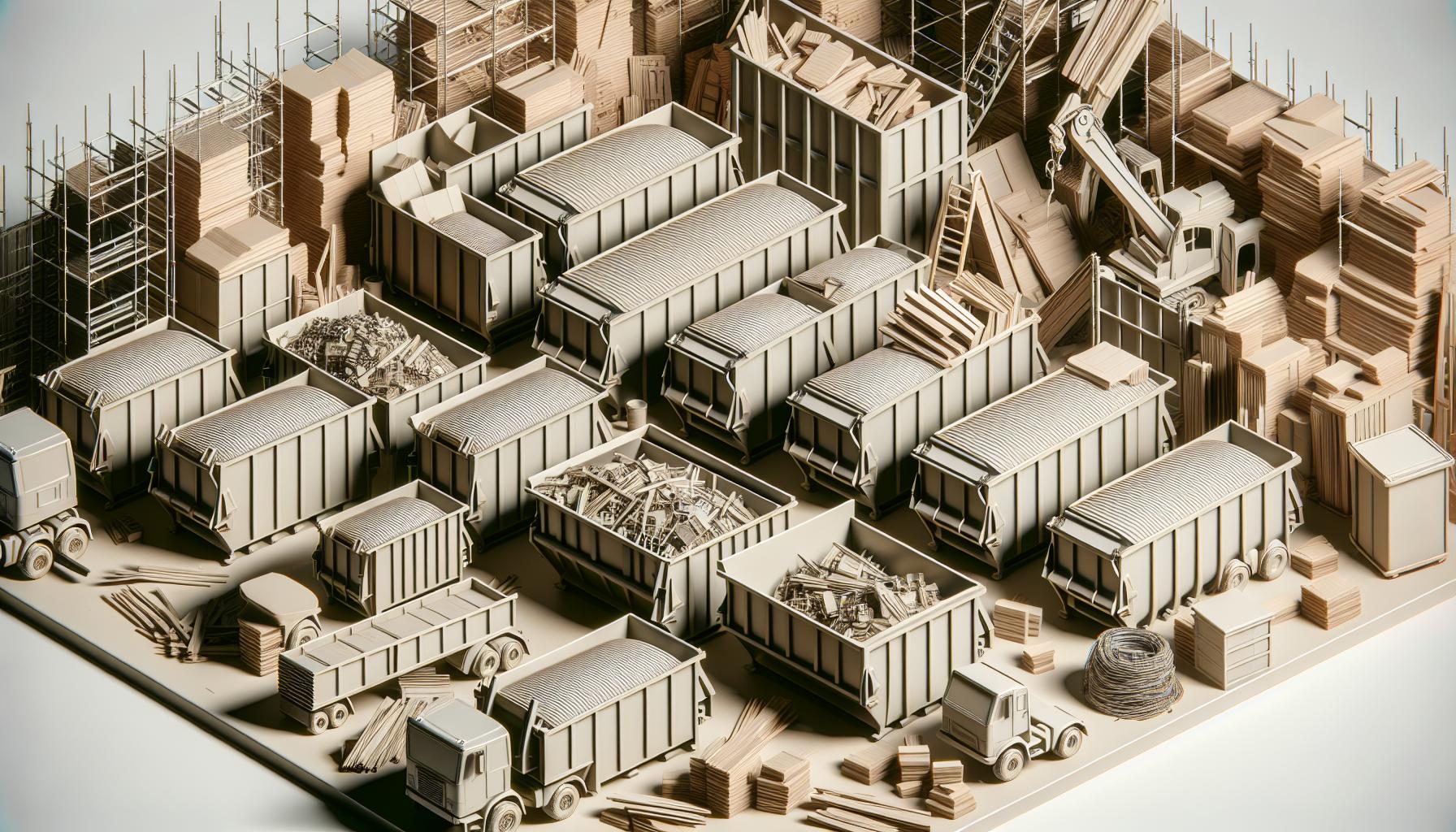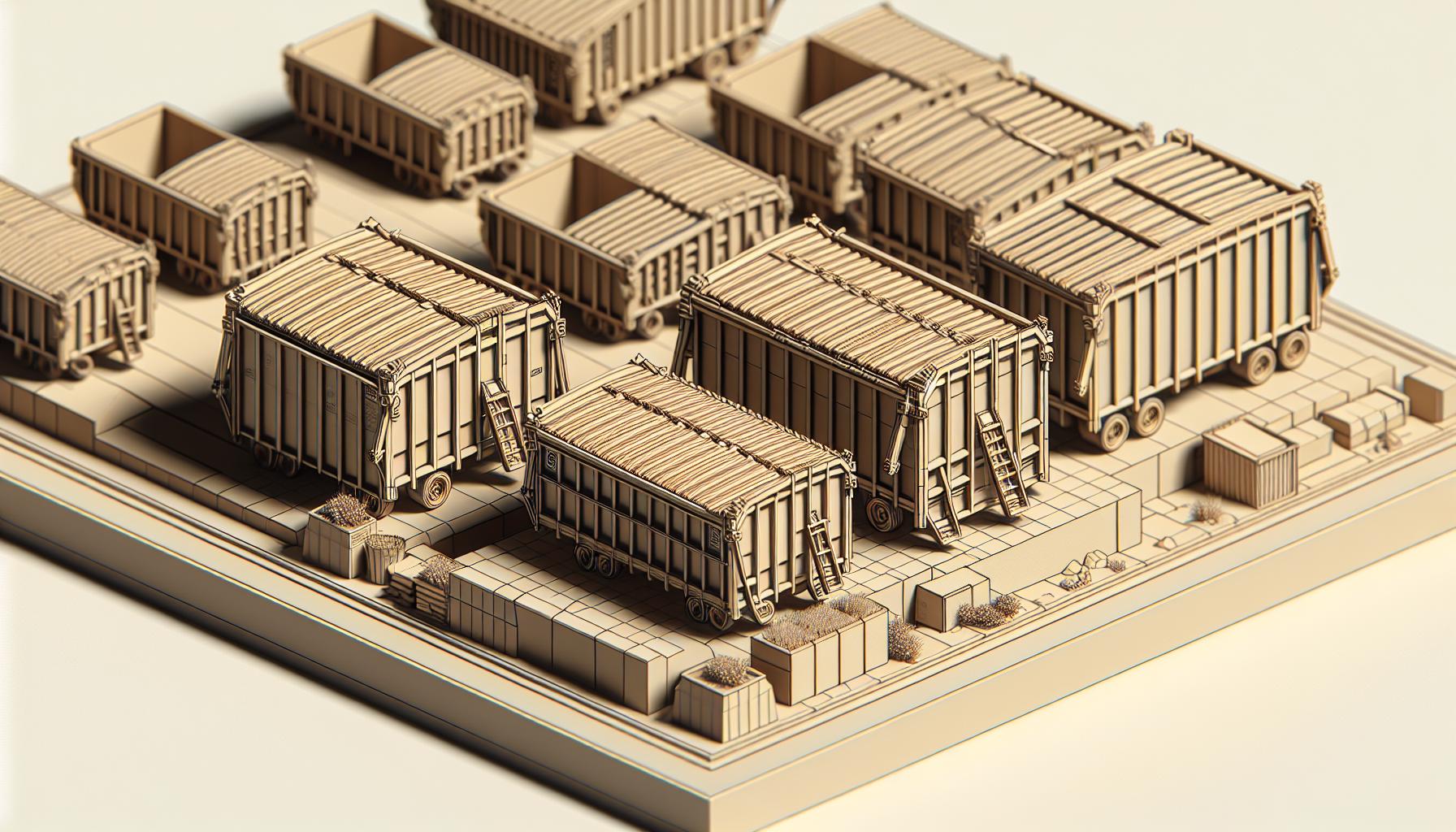Embarking on a big project often means you'll need a reliable way to manage waste, and dumpster rental stands out as a go-to solution. However, before you dive into the convenience it offers, there's a crucial step you can't overlook: understanding local regulations. Navigating these rules might seem daunting, but it's essential for a smooth and lawful project completion.
Local regulations can vary widely, affecting everything from the size of the dumpster you can rent to where you can place it and for how long. Being in the know not only keeps you compliant but also helps you avoid unexpected fines. Whether you're a homeowner embarking on a DIY renovation or a contractor managing a construction site, this guide is your first step toward mastering the essentials of dumpster rental regulations. Let's ensure your project runs as smoothly as possible by getting to grips with the local legal landscape.
Understanding Local Dumpster Rental Regulations
Before you click rent a dumpster near me, it's crucial to understand that local regulations play a significant role in the dumpster rental process. Every city and town has its own set of rules when it comes to managing waste, and these can greatly impact your options, including the size of the dumpster you can rent and where you can place it.
For instance, if you're considering a 20 yard dumpster for a medium-sized project, you'll need to verify whether local laws allow for this size on your property or if a permit is required. Similarly, 30 yard dumpsters and even 10 yard dumpsters might have different regulations based on the project type and location.
Here are a few aspects you should check into:
- Permits: Many localities require permits for dumpster rentals, especially if the dumpster will be placed on public property or could affect traffic flow.
- Size Restrictions: The size of your project might require a roll off dumpster of a certain size, but local regulations may limit the size you can use or dictate specific placement instructions.
- Duration: How long you can keep a dumpster on-site can also be regulated. Understanding these time frames will help you plan better and avoid extra fees.
- Waste Types: Not all dumpster rentals are created equal. Certain materials might not be allowed in a standard garbage dumpster, necessitating a small dumpster specifically for hazardous waste or recyclables.
Ensuring you understand these regulations is not just about being law-abiding. It's also about optimizing your project for cost and efficiency. For instance, knowing the dumpster rental prices in your area can help you find a cheap dumpster that fits your budget without compromising on your project needs.
Why Local Regulations Matter for Dumpster Rental Users

When you're looking to rent a dumpster for your next big project, understanding local regulations is not just important—it's essential. Local regulations directly impact the dumpster rental process, shaping what can and can't be done. Here's why familiarizing yourself with these rules matters.
First off, regulations vary significantly from one location to another. A 20 yard dumpster that's easily placed in one neighborhood may be prohibited in another due to local zoning laws or space constraints. This could force you to opt for a 10 yard dumpster or a 30 yard dumpster, depending on what your project needs and what's permitted in your area.
Moreover, specific project requirements could mean you need a roll off dumpster for ease of access and disposal. But, not every location will allow these types without a special permit. You might find yourself paying more for a cheap dumpster than anticipated if your area demands specific permits for roll-off placements.
Waste type restrictions are another critical consideration. While it may seem convenient to go for the closest dumpster near me, local regulations on waste management might restrict the disposal of certain materials in a garbage dumpster. Whether it's construction debris, household waste, or hazardous materials, each category might have its own set of rules.
Lastly, dumpster rental prices can fluctuate based on the duration of rental and size needed. Some locales might offer flexibility in rental periods, while others could have strict timelines, influencing the overall cost of your rental.
By understanding the local regulations, you’re better prepared to choose the right small dumpster or larger option for your project, ensuring that your process is both cost-effective and compliant. Remember, knowledge about these regulations not only helps you navigate through your choices but also optimizes your project's efficiency from start to finish.
Key Factors to Consider in Local Dumpster Rental Regulations

If you're planning a renovation, cleanup, or construction project in Jonesboro, AR, understanding local regulations is key when it comes to dumpster rentals. City guidelines can affect everything from where you’re allowed to place your dumpster to the types of materials you can dispose of. Some areas may require permits, especially if you plan to place the dumpster on public property. By working with a trusted dumpster rental provider in Jonesboro, AR, you’ll get expert guidance on compliance, the right dumpster size for your needs, and timely service that helps keep your project on track.
Size and Type Restrictions
One of the first things you should check is the local regulations on dumpster sizes. Whether you need a 10 yard dumpster for a small cleanout or a 30 yard dumpster for a larger renovation project, it's essential to know what's allowed in your area. Moreover, certain projects might require the use of roll off dumpsters due to their convenience and capacity. Familiarizing yourself with these details ensures that you select the right dumpster for your needs while adhering to local guidelines.
Placement and Permit Requirements
Another critical aspect to consider is where you can place your dumpster. Most localities have specific rules about placing dumpsters on public property, often requiring a permit. If you're planning to place your dumpster near me—which, in this context, means on your property—you'll still need to ensure it doesn't violate any local ordinances regarding placement distances from streets and other structures.
Waste Type Limitations
Understanding the types of waste permitted in a dumpster is also key. Regulations on garbage dumpster rentals can restrict the disposal of certain materials. For instance, hazardous waste, electronics, and certain types of construction debris might not be allowed. Knowing these limitations beforehand can help you avoid additional fees or the need for a separate small dumpster for specific waste types.
By keeping these factors in mind as you navigate local dumpster rental regulations, you'll be better equipped to choose the right cheap dumpster while ensuring you meet all legal requirements. Remember, each project and location is unique, so thorough research and direct communication with rental companies and local authorities will always be your best strategy.
Sizing and Placement Restrictions for Rental Dumpsters
When you're looking to rent a dumpster, understanding the sizing and placement restrictions in your local area is crucial. Dumpster rental sizes vary, commonly ranging from 10-yard dumpsters for small projects to 30-yard dumpsters for larger construction work. However, not every size may be permissible in your locality. Make an effort to find a dumpster near me that meets both your project's needs and local regulations.
Local ordinances can significantly impact where you can place your rented dumpster. Most areas have specific regulations about placing dumpsters on public property, such as streets or sidewalks, which might require a permit. If you're considering a roll-off dumpster, ensure there's adequate space on your property while adhering to local rules to avoid penalties.
Moreover, the duration for which you can keep a garbage dumpster varies by location. Some areas allow for longer rental periods, making them ideal for protracted projects. This flexibility can affect dumpster rental prices, as extended rentals might come at a higher cost. Here's a quick glance at typical dumpster sizes and their uses:
| Dumpster Size | Typical Use |
|---|---|
| 10 yard | Small cleanup projects, minor renovations |
| 20 yard | Medium-sized renovation projects |
| 30 yard | Large construction or demolition projects |
For cheap dumpster options, consider tailoring your rental period and dumpster size to your project's specifics. Communicate with your rental ultimate dumpsters about your project and ask for their advice on the most cost-effective options.
Remember, the goal is to find a dumpster that balances your needs with compliance to local laws. Missteps here can lead to fines or delays, affecting your project's timeline and budget. Before sealing the deal on a small dumpster or any size, verify that your chosen placement site and the dumpster size are within legal bounds. This due diligence ensures your project runs smoothly while respecting municipal regulations.
Time Limitations and Permit Requirements for Dumpster Rental
When you're planning your next big project, understanding the time limitations and permit requirements for dumpster rental in your area is crucial. Every city has its own set of regulations that can significantly influence your project timeline and budget.
Understanding Dumpster Rental Time Limits
Local ordinances often dictate how long you can keep a rental dumpster on your property. This varies widely from one area to another, with some cities allowing a short 7-day rental period, while others may permit longer durations. It's important to inquire about these time restrictions with your chosen rental ultimate dumpsters to avoid unexpected fees. For instance, if you're considering a 30-yard dumpster for a major renovation, knowing the rental period can help you plan the project more efficiently.
Navigating Permit Requirements
In many areas, placing a dumpster, especially a roll-off dumpster, on public property such as a street or sidewalk requires a permit. The need for a permit hinges on your location and where you plan to place the dumpster. For example, a dumpster near me search can yield various regulations based on city and state. It's essential to check with local authorities or consult with your rental ultimate dumpsters to understand these requirements fully. Obtaining a permit can take anywhere from a day to several weeks, so it's advisable to plan this step well in advance.
- Check local time restrictions for dumpster rentals to align with your project timeline.
- Determine if a permit is necessary based on your dumpster's location and size, such as a 10-yard dumpster or a 20-yard dumpster.
- Contact your local municipality or rental ultimate dumpsters early to understand and fulfill any permit requirements.
Understanding these aspects will help ensure that your dumpster rental process is smooth and compliant with local laws, thus avoiding any potential fines or delays in your project.
Tips for Navigating Local Dumpster Rental Regulations

Before you start your project, it's crucial to familiarize yourself with the local laws and regulations surrounding dumpster rentals. This not only helps you stay compliant but also ensures your project proceeds without unnecessary hitches. Understanding the nuances of these regulations can be the difference between a smooth operation and potential fines or delays.
First off, know the dumpster sizes available to you. Dumpster sizes vary widely, from 10 yard dumpsters suitable for small cleanup projects to 30 yard dumpsters designed for large construction or renovation projects. However, not all sizes may be permissible in your locality. Check with local authorities or a dumpster rental ultimate dumpsters to understand what sizes are allowed for your specific project.
When searching for a dumpster rental near me, consider roll off dumpsters for ease of use and flexibility. However, remember that placement is key. Many cities have strict regulations about where a dumpster can be positioned, especially if you’re planning to place it on public property. You might need a permit for this, so it's wise to inquire early.
Dumpster rental prices can also vary based on the duration of the rental and the type of waste you're disposing of. Some materials, classified as hazardous or specialty waste, may incur additional fees or may not be allowed in a standard garbage dumpster. It’s important to have a clear list of what you'll be disposing of to avoid any surprises.
To find a cheap dumpster that fits your needs, don't hesitate to shop around and ask for quotes from multiple providers. Be clear about your project's scope, the dumpster size you need, and the duration of the rental. Providers often offer different rates, and some research can lead to significant savings.
Lastly, always confirm the pickup and drop-off dates with your rental ultimate dumpsters. Knowing these dates ensures that your project timeline aligns with the rental period, preventing any potential clashes or extra costs.
Conclusion
Navigating local regulations for dumpster rental doesn't have to be daunting. Armed with the right information, you're well on your way to making informed decisions that align with your project's needs while adhering to legal requirements. Remember, the key to a hassle-free rental experience lies in understanding the specifics around sizing, placement, and duration of your rental. Don't hesitate to reach out to rental companies for guidance and to clarify any doubts. By taking these steps, you'll not only avoid potential fines or delays but also ensure that your project runs smoothly from start to finish. Keep these tips in mind, and you're sure to find a dumpster rental option that's both cost-effective and compliant with local laws.
Frequently Asked Questions
What should I understand before renting a dumpster?
You should be aware of local regulations regarding waste management, which can affect dumpster size, placement location, rental duration, and types of allowable waste. Understanding these rules can help avoid fines or delays.
Are there size restrictions on dumpsters?
Yes, size restrictions on dumpsters vary by locality. It's important to verify with local regulations and rental companies to ensure the dumpster size you intend to rent is permissible in your area.
Do I need a permit to place a dumpster on public property?
In many cases, yes. Specific regulations vary, so it’s essential to check local ordinances if you plan to place a dumpster on public property. A permit may be required.
How does rental duration affect the cost?
The cost of renting a dumpster often depends on the length of the rental period. Longer rental periods can lead to higher costs. Contact rental companies for specific pricing details.
Can the type of waste affect my rental?
Absolutely. Different types of waste may have specific disposal requirements, and some materials may not be allowed. It’s important to clarify the type of waste you plan to dispose of when renting a dumpster.
Why should I shop around for dumpster rental quotes?
Shopping around can help you find more cost-effective options and services that best fit your needs while ensuring compliance with local regulations. It’s beneficial to compare quotes from multiple providers.
How important is it to confirm pickup and drop-off dates?
Very important. Confirming pickup and drop-off dates with the rental company is crucial to avoid any misunderstandings and ensure a smooth rental process. This helps in managing your project timeline effectively.
nbsp;

It’s the best time to make some plans for the future and it is time to be
happy. I’ve read this post and if I could I desire to
suggest you some interesting things or suggestions.
Perhaps you could write next articles referring to this article.
I want to read more things about it!